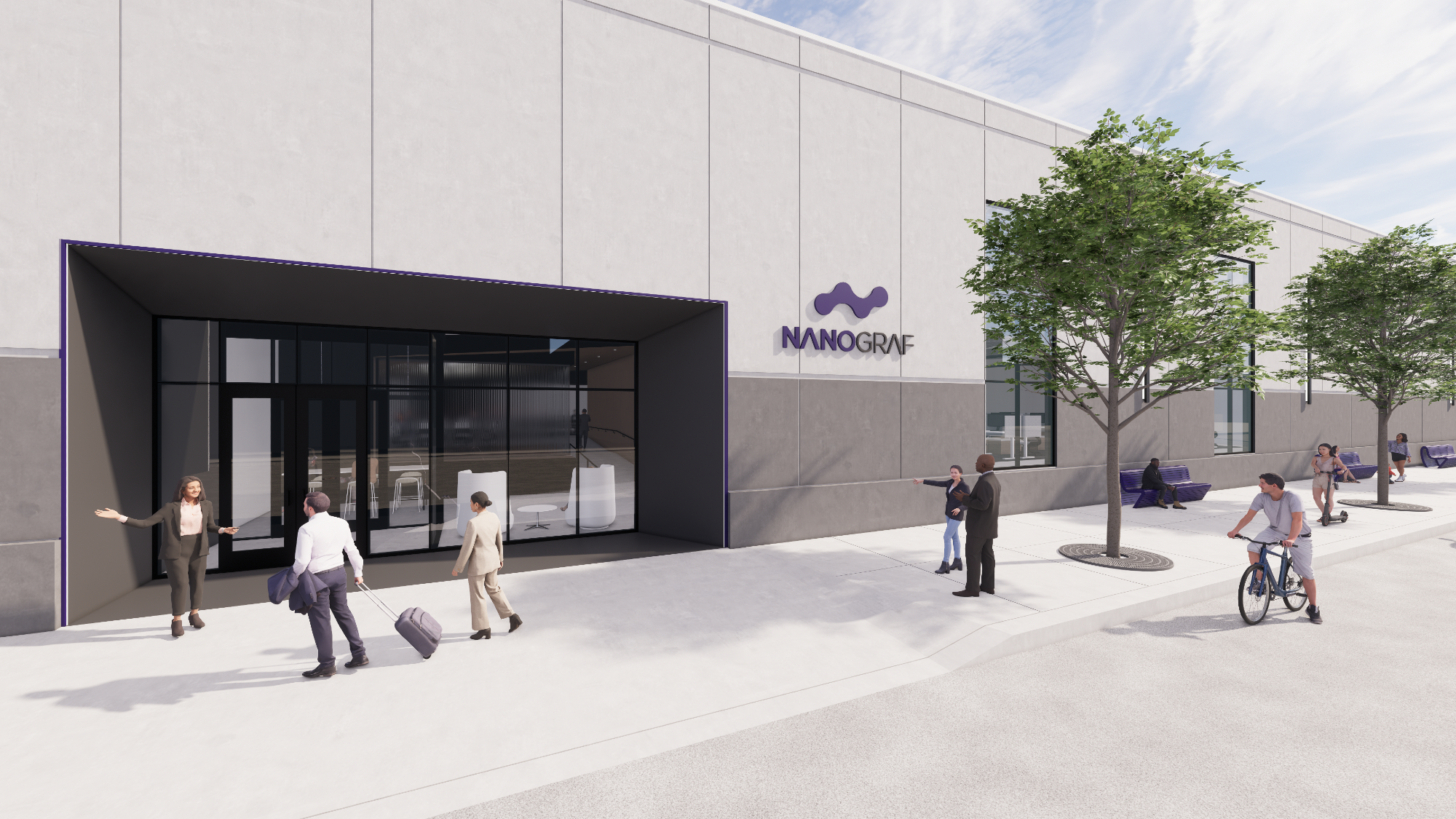NanoGraf, the battery material company enabling stronger, lighter, longer-lasting lithium-ion batteries, today announced the opening of a new facility for advanced manufacturing and expanded R&D capabilities, increasing its Chicago footprint by nearly 400%. The company’s new location, a 67,850-square-foot building at 455 N Ashland Avenue, will house manufacturing space, laboratories, inventory, and office space.
 NanoGraf's new R&D facility at 455 N Ashland Avenue in Chicago's West Loop neighborhood. Image Credit: NanoGraf
NanoGraf's new R&D facility at 455 N Ashland Avenue in Chicago's West Loop neighborhood. Image Credit: NanoGraf
This announcement comes shortly after the ribbon-cutting at NanoGraf’s Chicago headquarters at 400 N Noble Street, the Midwest’s first advanced silicon anode production facility. At the new building, NanoGraf will accelerate its efforts to equip U.S. soldiers in the field with a regular supply of batteries that – thanks to NanoGraf’s silicon anode material – last 30% longer and are cross-compatible with more devices. NanoGraf will also use the space to work toward commercialization.
“NanoGraf is developing better battery materials here in the United States,” said Francis Wang, CEO of NanoGraf. “With our second facility, we’ll be able to advance our work on our Department of Defense contracts, ensuring that soldiers have the power they need to complete their missions.”
Like NanoGraf’s other Chicago facility, NanoGraf’s new building is located in the fast-growing West Loop neighborhood. With the new location, NanoGraf expects to add 60 jobs, driving economic opportunities locally while also supporting NanoGraf’s efforts to onshore the battery supply chain.
“We’re delighted to welcome NanoGraf’s expansion within our city,” said Chicago Mayor Brandon Johnson. “NanoGraf is an important part of the technological progress, STEM job growth, and economic growth happening here in the city, and we look forward to seeing their continued success.”
The opening of the new space is the latest in a series of milestones for NanoGraf. In January 2024, the company announced a new contract worth up to $15 million from the U.S. Army to develop cross-compatible batteries for soldiers in the field. In December 2023, NanoGraf was awarded an $8 million contract from the U.S. Army to increase the supply of batteries to soldiers. Those two recent contracts bring NanoGraf’s total U.S. Department of Defense funding to $45 million.
JLL’s Max Zwolan, Scott Brandwein, and Michael Conway represented NanoGraf in lease negotiations. CBRE’s Matt Cowie and Larry Goldwasser represented the landlord, Prologis.